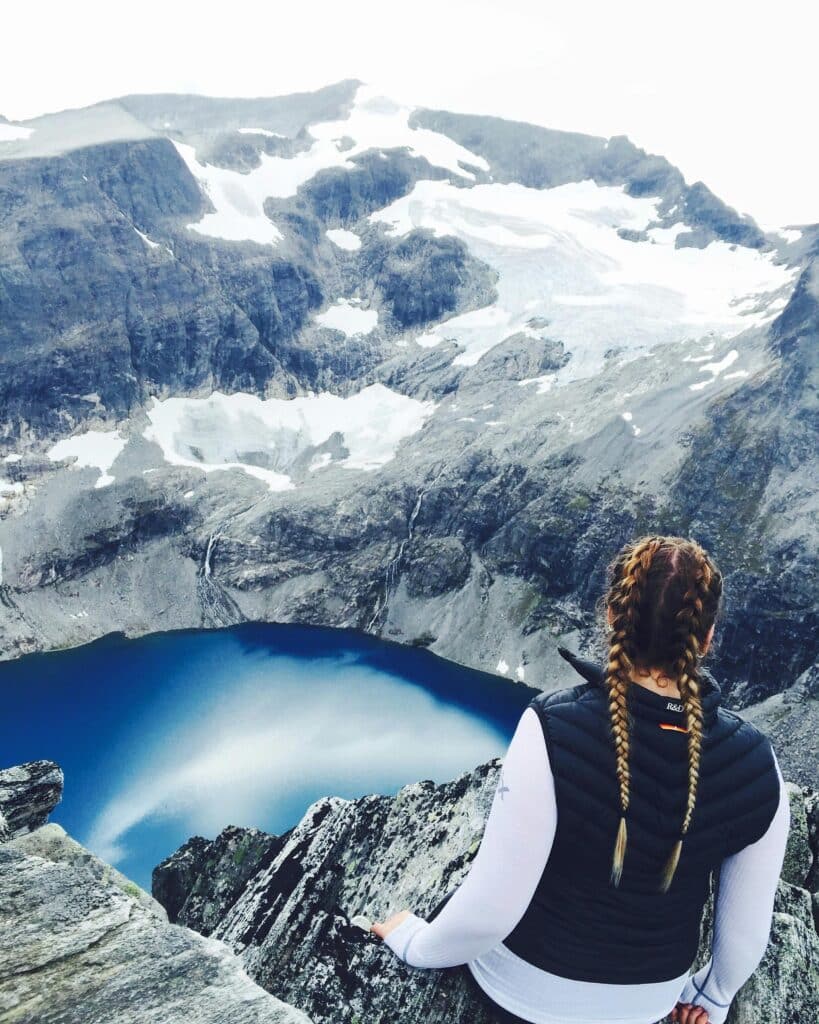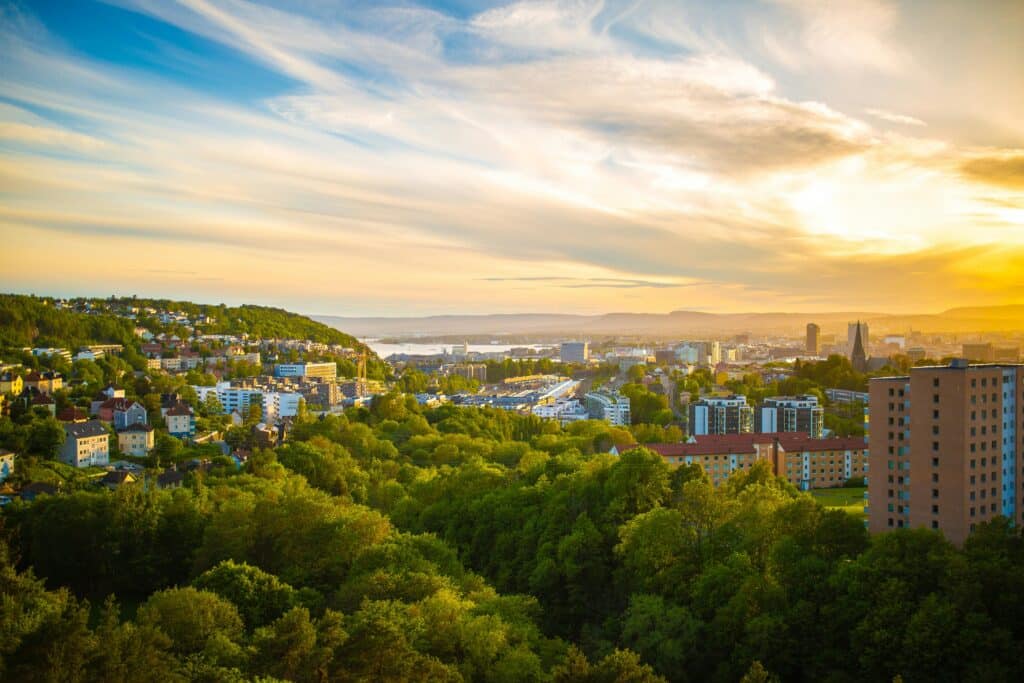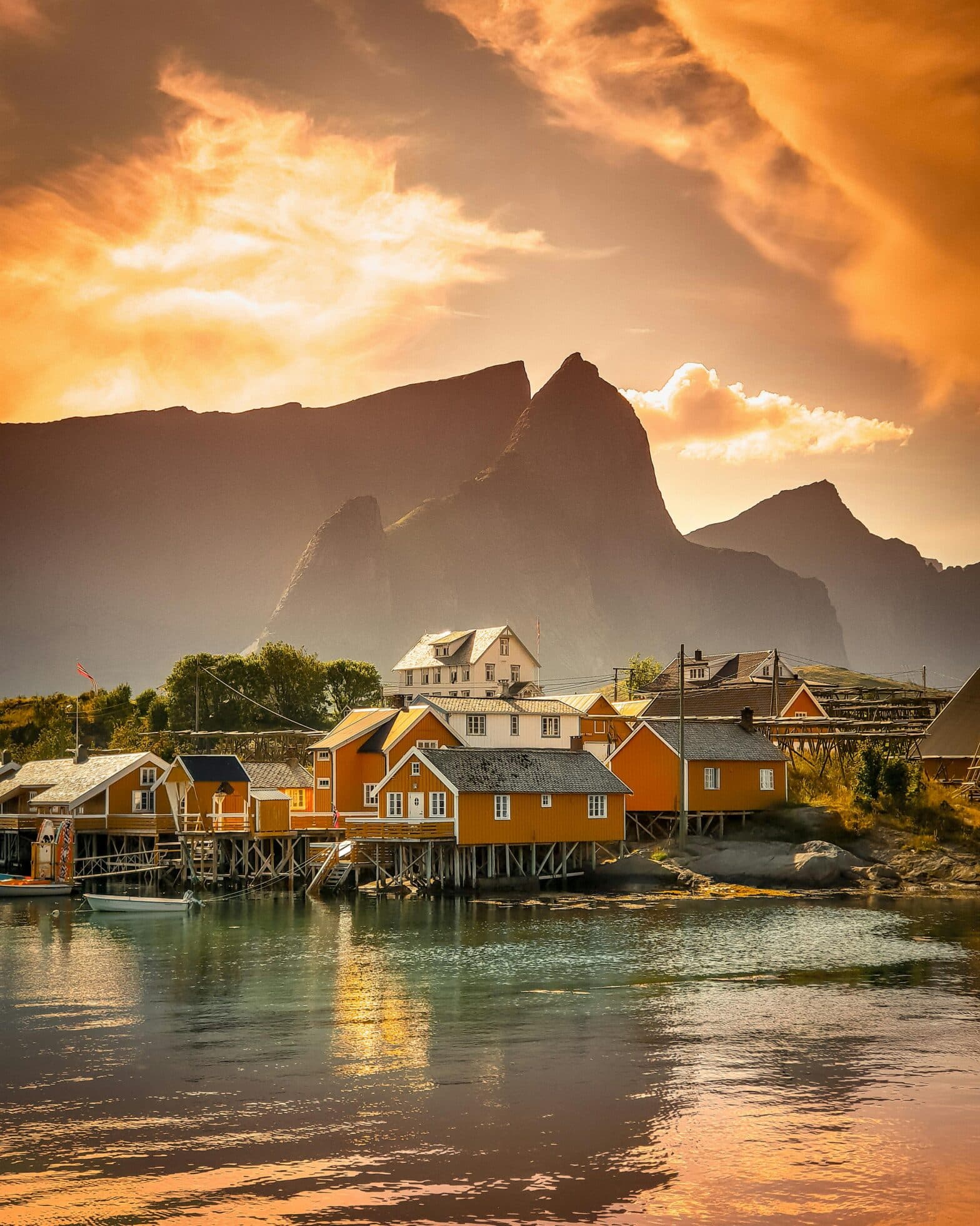Norway is a country where nature reigns supreme with majestic fjords, northern lights and breath-taking archipelagos. Offering an excellent quality of life, scenic landscapes and a reliable public infrastructure: the land of fjords is a land of opportunity for global expatriates. From visas to taxes, we are here to ensure your relocation success in Scandinavia. Foyer Global Health offers you a brief overview of expat life in Norway
Moving to Norway: Formalities
If you are a citizen of a Nordic country, you have the right to settle in Norway without a residence permit. If you are a citizen of a member state of the European Union, you do not need a residence permit to settle in Norway. However, you must register with the Norwegian police in order to obtain a registration certificate.
Third-country nationals must apply for a residence permit from the relevant authorities.
Once in Norway, you are required to apply for a job within six months of your arrival, failing which you will be required to leave the country. Once you have found a job, you can obtain a Norwegian identity card, in order to open a bank account or join the national health insurance scheme.
For more information on formalities, click here!
Living in Norway: the pros and the cons

The advantages
- The land of Fjords is one of the happiest countries in the world along with Sweden and Finland.
- Excellent quality of life, with good schools and excellent healthcare services
- Exceptional living environment with a wealth of natural treasures: fjords, parks, mountains and villages
- Safety and Security: Norway is considered one of the safest countries in the world, with a low crime rate.
- Work-life balance implemented and celebrated in the workplace
- A dynamic economy, with a low unemployment rate below 4%, featuring solid growth and buoyant sectors such as technology, energy and fishing!
- A strong commitment to equality of gender at all levels of society.
The (few) disadvantages
- High cost of living as Norway is one of the most expensive countries in the world.
- Norwegian can be difficult to learn.
Climate: both a pro and a con!
The climate in Norway varies considerably from one part of the country to another, which can be both an advantage and a disadvantage. For example, the coastal regions of south-west Norway have a temperate oceanic climate, with mild winters and fairly cool summers, whereas north of the Arctic Circle (Tromsø or Finnmark) the climate is subarctic, with long, very cold winters.
What you need to know
- Norway has two official written languages: Bokmål (the language of books) and Nynorsk (New Norwegian), but English is widely spoken by the Norwegian population, especially in the cities.
- Norway is a country that protects the rights of women and families who play a central role in Norwegian society.
- The national currency is the Norwegian krone (NOK). 1 NOK = €0.08
Working in Norway
The Norwegian labour market is very dynamic, with buoyant sectors such as the oil and gas industry, technology and information sectors, health, fishing and renewable energy.
It is essential to have a solid foundation in Norwegian to work in a Norwegian company, unless you choose a company with an international presence. Or, like many expats, you may choose to work for a multinational company, where business is likely to be conducted in English. It is, however, highly recommended that you take Norwegian language courses to help you integrate into the workplace and into society in general.
Although there is no legal minimum wage, average net monthly salaries, equivalent to €3070.91, are higher than the OECD average. The country’s companies offer attractive working conditions, practise flat hierarchies and a good work-life balance. The working week is 37.5 hours and it is common for the working day to end at 4pm with an average lunch break of 30 minutes.
Useful links:
https://www.finn.no/job/browse.html
Taxes
If you stay in Norway for more than 183 days within a twelve-month period, you are considered a tax resident of the country and must pay tax in Norway on income earned during a calendar year. General income is taxed at 22% for both individuals and companies on their profits. In addition to this tax, there is a six-tiered bracket tax calculated on personal income and a wealth tax calculated on the basis of net worth.
For more information on taxes, click here!
Finding accommodation in Norway
Housing is a major expense in Norway. Especially in large cities such as Oslo and Bergen where house prices are very high. In the capital, you can expect to pay an average of €1,400 for a two-room apartment, excluding utilities which run on an average of €150 per month. The landlord may ask you for four months’ rent in advance. If you are planning to stay in Norway for a long time, it is undoubtedly more advantageous and cheaper to buy your own home, as 81% of Norwegians do.

About the Norwegian healthcare system
Norway’s semi-decentralised and government-funded public healthcare system is considered one of the most accessible in the world, offering high-quality medical services through a solid healthcare infrastructure. As an expat, you can join the National Health Insurance Scheme (Helfo) and have access to all public health services. However, for reasons of flexibility and freedom of choice, expats often opt for private international health insurance, which guarantees effective and comprehensive coverage in any healthcare facility (public or private) anywhere in the world.
Schools for Expat children
Children attend nursery schools (barnehage) up to the age of six, before being enrolled in Norwegian schools or international schools such as the Oslo International School or the German school of Oslo. Your choice of school will mainly depend on the length of your stay. Some expats who plan to stay in the country for a long time prefer to send their children to Norwegian state schools to facilitate their social integration, while others prefer to send them to international schools to start or to continue learning in their mother tongue. Norwegian public schools have “welcoming classes” for foreign children.
Here are a few ideas for combining relocation and tourism
- Seek out the northern lights in the far north between late November and early March. To maximise your chances, head for Tromsø, the country’s Arctic capital..
- Embark on an epic journey, via Geirangerfjord, Lysefjorden or Hjørundfjord, to take in thousands of fjords and spectacular thousand-year-old cliffs that crisscross the country’s coastline.
- Treat yourself to a magical Nordic gastronomic experience at Rest, a fine dining restaurant offering a creative culinary experience.
- Set sail for the gorgeous Lofoten Islands, an open-air haven for sea lovers where you’ll meet surfers, kayakers, fishermen and…. lots of artists!
- Cross the Arctic Circle by train.The dramatic mountain peaks between Trondheim and Bodø are magical!
- Sunbathe… at midnight! In the summer, the sun is always shining, flooding the Norwegian countryside with an abundance of light. Take advantage of these endless days to engage in lots of outdoor activities!
- Search out the polar bears in Svalbard, between the North Pole and Norwegian territory.
- Stop in Karasjok to discover the culture of the Sami, the indigenous people of northern Norway, Sweden, Finland and Russia.
